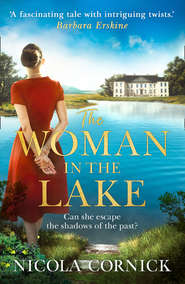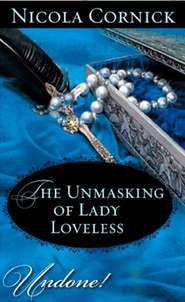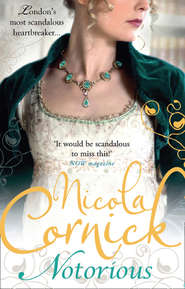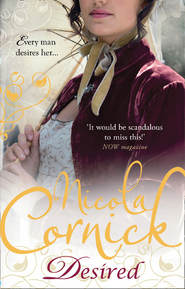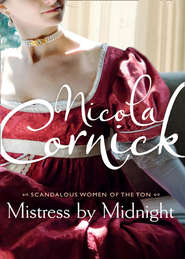По всем вопросам обращайтесь на: info@litportal.ru
(©) 2003-2024.
✖
The Heart Of Christmas: A Handful Of Gold / The Season for Suitors / This Wicked Gift
Автор
Год написания книги
2019
Настройки чтения
Размер шрифта
Высота строк
Поля
“But if I did not,” Verity said, “I would not be able to tell you about all the splendid parties and theater performances I attend. I shall describe the opera to you in the morning or, more to the point, the people who were in the audience. Go back to sleep now.” She kept her voice warm and cheerful.
“Verity,” Chastity said, “you must not think that I am not grateful, that I do not know the sacrifice you are making for my sake. One day I will make it all up to you. I promise.”
Verity blinked back tears from her eyes. “Oh yes, you will, love,” she said. “In the springtime you are going to dance among the primroses and daffodils, unseasonable roses in your cheeks. Then you will have repaid me double—no, ten times over—for the little I am able to do now. Go to sleep, you goose.”
“Good night.” Chastity yawned hugely and only a minute or two later was breathing deeply and evenly again.
There was one way in which a dancer might augment her income. Indeed she was almost expected to do so. Verity hid her head beneath the covers once more and tried not to develop the thought. But it had been nagging at her for a week or more. And she had said those words to Mama earlier, almost as if she were preparing the way. Lady Coleman declared that she is pleased with me and is considering raising my salary quite substantially.
She had acquired quite a regular court of admirers in the greenroom following each performance. Two of the gentlemen had already made blatant offers to her. One had mentioned a sum that she had found quite dizzying. She had told herself repeatedly that she was not even tempted. Nor was she. But it was not a matter of temptation. It was a matter for cold decision.
The only possible reason she would do such a thing was her mother’s and Chastity’s security. A great deal more money was going to have to be found if Chass was to continue to have the treatment she needed. It was a matter of her virtue in exchange for Chastity’s life, then.
Phrased that way, there was really no decision to make.
And then she thought of the advent of temptation that had presented itself to her just that evening in the form of the gentleman who had stood in the doorway of the greenroom, looking at her insolently through his quizzing glass for a minute or so before joining the crowd of gentlemen gathered about Hannah Dove. His actions had suggested that he was not after all interested in her, Verity—or rather in Blanche—and yet she had been left with the strange notion that he had watched her all the time he was in the greenroom.
He was Viscount Folingsby, a notorious rake, another dancer had told her later. Verity would likely have guessed it anyway. Apart from being almost incredibly handsome—tall, well formed, very dark, with eyes that were both penetrating and slumberous—there was an air of self-assurance and arrogance about him that proclaimed him to be a man accustomed to having his own way. There was also something almost unbearably sensual about him. A rake, yes. Without a doubt.
Yet she had been horribly tempted for that minute. If he had approached her, if he had made her an offer…
Thank heaven he had not done either.
But soon, very soon, she was going to have to consider and accept someone’s offer. There! Finally she was calling a spade a spade. She was going to have to become someone’s mistress. No, that was calling a spade a utensil. She was going to have to become someone’s whore.
For a dizzying minute the room spun about her, closed eyes notwithstanding.
For Chastity, she told herself determinedly. For Chastity’s life.
Chapter Two
JULIAN VISITED the greenroom at the opera house two evenings after his previous appearance there. There were a few men talking with Blanche Heyward. Hannah Dove was invisible amidst her court of admirers. His lordship joined them and chatted amiably for a while. It was not part of his plan to appear overeager. Several minutes passed before he strolled over to make his bow to the titian-haired dancer.
“Miss Heyward,” he said languidly, holding her eyes with his own, “your servant. May I commend you on your performance this evening?”
“Thank you, my lord.” Her voice was low, melodic. Seductive, and deliberately schooled to sound that way, he guessed. Her eyes looked candidly—and shrewdly?—back into his. He did not for a moment believe she was a virtuous woman. Or that what little virtue she had was not for hire.
“I have just been commending Miss Heyward on her talent and grace, Folingsby,” Netherford said. “Damme, but if she were in a ballroom, she would put every other lady to shame. No gentleman would wish to dance with anyone but her, eh? Eh?” He dug one elbow into his lordship’s ribs.
There were appreciative titters from the other gentlemen gathered about her.
“Dear me,” his lordship murmured. “I wonder if Miss Heyward would wish to court such—ah, fame.”
“Or such notoriety,” she said with a fleeting smile.
“Damme,” Netherford continued, “but one would love to watch you waltz, Miss Heyward. Trouble is, every other man present would want to stand and watch, too, and there would be no one to dance with all the other chits.” There was a general gust of laughter at his words.
Julian raised his quizzing glass to his eye and caught a suggestion of scorn in the dancer’s smile.
“Thank you, sir,” she said. “You are flatteringly kind. But I am weary, gentlemen. It has been a long evening.”
And thus bluntly she dismissed her court. They went meekly, after making their bows and bidding her good-night—three of them out the door, one to join the crowd still clustered about Hannah Dove. Julian remained.
Blanche Heyward looked up at him inquiringly. “My lord?” she said, a suggestion of a challenge in her voice.
“Sometimes I find,” he said, dropping his glass and clasping his hands at his back, “that weariness can be treated as effectively with a quiet and leisurely meal as with sleep. Would you care to join me for supper?”
She opened her mouth to refuse—he read the intent in her expression—hesitated, and closed her mouth again.
“For supper, my lord?” She raised her eyebrows.
“I have reserved a private parlor in a tavern not far from here,” he told her. “I would as soon have company as eat alone.” And yet, he told her with his nonchalant expression and the language of his body, he would almost as soon eat alone. It mattered little to him whether she accepted or not.
She broke eye contact with him and looked down at her hands. She was clearly working up a refusal again. Equally clearly she was tempted. Or—and he rather suspected that this was the true interpretation of her behavior—she was as practiced as he in sending the message she wished to send. A reluctance and a certain indifference, in this case. But a fixed intention, nevertheless, of accepting in the end. He made it easier for her, or rather he took the game back into his own hands.
“Miss Heyward.” He leaned slightly toward her and lowered his voice. “I am inviting you to supper, not to bed.”
Her eyes snapped back to his and he read in them the startled knowledge that she had been bested. She half smiled.
“Thank you, my lord,” she said. “I am rather hungry. Will you wait while I fetch my cloak?”
He gave a slight inclination of his head, and she stood up. He was surprised by her height now that he was standing close to her. He was a tall man and dwarfed most women. She was scarcely more than half a head shorter than he.
Well, he thought with satisfaction, the first move had been made and he had emerged the winner. She had agreed only to supper, it was true, but if he could not turn that minor triumph into a week of pleasure in Norfolkshire, then he deserved the fate awaiting him at Conway in the form of the ferret-faced Lady Sarah Plunkett.
He did not expect to lose the game.
And he did not believe, moreover, that she intended he should.
IT WAS a square, spacious room with timbered ceiling and large fireplace, in which a cheerful fire crackled. In the center of the room was one table set for two, with fine china and crystal laid out on a crisply starched white cloth. Two long candles burned in pewter holders.
Viscount Folingsby must have been confident, Verity concluded, that she would say yes. He took her cloak in silence. Without looking at him, she crossed the room to the fire and held out her hands to the blaze. She felt more nervous than she had ever felt before, she believed, even counting her audition and her first onstage performance. Or perhaps it was a different kind of nervousness.
“It is a cold night,” he said.
“Yes.” Not that there had been much chance to notice the chill. A sumptuous private carriage had brought them the short distance from the theater. They had not spoken during the journey.
She did not believe it was an invitation just to supper. But she still did not know what her answer would be to the inevitable question. Perhaps it was understood in the demimonde that when one accepted such an invitation as this, one was committing oneself to giving thanks in the obvious way.
Could it possibly be that before this night was over she would have taken the irrevocable step? What would it feel like? she wondered suddenly. And how would she feel in the morning?
“Green suits you,” Lord Folingsby said, and Verity despised the way she jerked with alarm to find that he was close behind her. “Not all women have the wisdom and taste to choose clothes that suit their coloring.”
She was wearing her dark green silk, which she had always liked though it was woefully outmoded and almost shabby. But its simple high-waisted, straightsleeved design gave it a sort of timeless elegance that did not date itself as quickly as more fussy, more modish styles.
“Thank you,” she said.
“I fancy,” he said, “that some artist must once have mixed his paints with care and used a fine brush in order to produce the particular color of your eyes. It is unusual, if not unique.”






